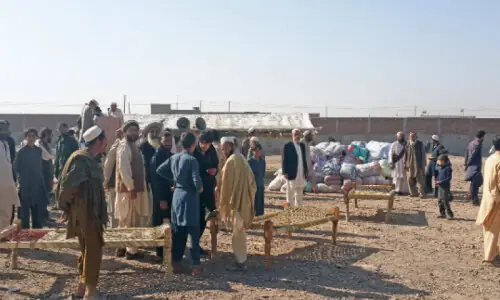PESHAWAR: The Khyber Pakhtunkhwa Judicial Academy (KPJA) is set to launch a degree awarding postgraduate institute for promoting research-based judicial education.
Peshawar High Court Chief Justice Mazhar Alam Miankhel will inaugurate the “Khyber Pakhtunkhwa Postgraduate Institute of Research and Judicial Studies” on Saturday (tomorrow) on the premises of the academy.
KPJA director general Hayat Ali Shah told Dawn that this institute would be the first of its kind in Pakistan as so far no other training academy had been given degree awarding status.
Institute to promote research-based judicial education
He said that the Higher Education Commission had granted degree awarding status to KPJA a few weeks ago after its officials visited the academy and examined the resources and infrastructure available on ground. He said that initially the institute would start LLM classes and then PhD classes at a later stage. He said that they had also proposed to the provincial government certain changes in the KPJA Act, 2012 so as to include in its functions the awarding of degrees.
The judicial academy was set up in March 2011 and it started proper functioning after the KPJA Act was passed by the provincial assembly in Jan 2012. The prime objective of the academy was to train judges and personnel working with other justice system institutions to develop their capacity, professional competence and ethical standards for efficient dispensation of justice.
The dean faculty at the academy, Dr Khursheed Iqbal, said that the academy had already signed MoUs with three public sector universities, including Malakand University, Abdul Wali Khan University Mardan and Hazara University. He said that the objective of the institute would be to introduce judicial studies as a major subject in view of the emerging requirements in and around the province as well as abroad. He said that the institute would focus on different emerging fields like cyber laws, money laundering, etc in which normally no research took place in the country.
Dr Iqbal said that in other research institutes the subject of judicial studies was only for judges, but in case of this institute they would focus both professional judges as well as academia so that both could learn from their experiences and expertise.
He said that they had felt that there was no proper liaison between the professionals in the field with the local and global academic institutions. He said that it would be their endeavour to develop linkages, both inland and abroad, with other academic and policy institutions.
Published in Dawn, September 5th, 2014






























